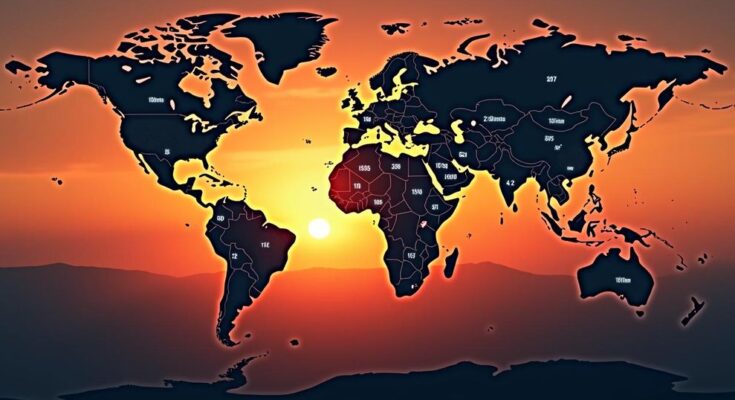The death of Hassan Nasrallah, leader of Hezbollah, due to an Israeli airstrike on his underground bunker, has triggered a reevaluation of Lebanon’s political dynamics and the potential for a new order in the region. While some view this as a chance to dismantle Hezbollah’s dominance, others fear it may lead to civil conflict amid a power vacuum. As the people of Beirut grapple with the aftermath of the attack, reactions are mixed, highlighting societal divisions and the broader implications of his absence.
The announcement of Hassan Nasrallah’s death marked a significant and unsettling moment for Lebanon, raising questions about the future of political dynamics within the nation after three decades of Hezbollah’s dominance. The Israeli airstrike that allegedly took his life sent shockwaves across the region, leading to a mixture of fear and hope among various populations impacted by Hezbollah’s actions. As news of the bombing spread, a collective anxiety gripped the Lebanese people, who were reminded of the violent civil war that had plagued their country from 1975 to 1990. Nasrallah, a pivotal figure in Lebanese politics and one of the foremost leaders of Hezbollah, had become synonymous with resistance against Israel and the West. His death potentially opens doors to new political realities in Lebanon, given that many political factions may seek to exploit the power vacuum. The immediate aftermath of the attack saw significant unrest, with displaced individuals flocking to public squares, embodying a shared sense of displacement and despair. Mourners gathered to pay tribute to a leader who had unified many through a complex mix of admiration and fear. As the news of Nasrallah’s death circulated, celebrations erupted among Hezbollah’s adversaries, notably in regions where feelings of resentment towards the group ran deep, such as in Syrian-held territories. Sadly, the chaos also served to amplify societal divisions, with some individuals tragically turning their anger towards the Syrian refugees residing in Lebanon, who faced newfound threats of violence in the wake of the bombing. The sociopolitical landscape of Lebanon hangs in the balance as the once tightly-controlled narrative of Hezbollah hangs in uncertainty, prompting discussions among political analysts about possible shifts in allegiances and power structures. In this context, it is imperative to consider the impact of Nasrallah’s tenure and philosophy. While his leadership was characterized by staunch resistance to foreign intervention, it was also steeped in controversy, given the violent tactics employed by Hezbollah against perceived threats, including political opponents and those critical of his regime. His complex legacy evokes a myriad of emotions, signifying both a moment of collective grief and a call to action for many seeking a permanent alteration in Lebanon’s direction.
The death of Hassan Nasrallah, the long-standing leader of Hezbollah, presents a pivotal moment in the political landscape of Lebanon. For 32 years, he has been central not only to Hezbollah’s military and political strategies but also to the broader regional resistance against Israel and U.S. interests in the Middle East. His death, potentially at the hands of an Israeli airstrike, symbolizes a noteworthy turning point that could lead to a reconfiguration of power dynamics within Lebanon and the surrounding region. Hezbollah’s control over the country has long been marked by a controversial mix of ideological fervor and military power, making Nasrallah’s absence significant for both supporters and enemies alike. The incident evokes memories of Lebanon’s civil strife and underlines existing tensions between various factions, including those among Lebanese society, with repercussions for Syrian refugees and the larger geopolitical landscape.
In summary, the death of Hassan Nasrallah marks a transformative moment for Lebanon, raising uncertainties about the country’s future direction. While some view this as a potential opportunity for new beginnings free from Hezbollah’s grip, others fear the repercussions of a power vacuum—particularly the risk of civil strife reminiscent of Lebanon’s previous wars. The ensuing chaos has not only reshaped the immediate social fabric of Beirut but has also significantly impacted the relationships between different factions, including the longstanding tensions between Hezbollah and its opponents, accelerating the conversation about Lebanon’s political future in the face of profound grief and instability.
Original Source: www.theatlantic.com




